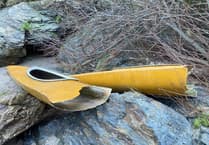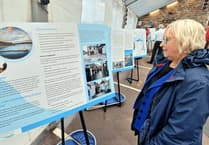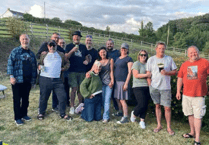WESTCOUNTRY farmers can discover how to make thousands of pounds in extra revenue at this year’s Royal Cornwall Show to help offset the shortfall in support payments – by diversifying into providing land for staycation campsites.
According to the Countryside and Community Research Institute (CCRI), the rural economy of the South West stands to lose out on a whopping £883m between now and 2027 when payments under the Basic Payment Scheme (BPS) stop.
BPS provides support for farmers to grow food but it is being phased out in favour of one that encourages them to protect the environment instead.
However, the new scheme puts many farmers across Cornwall, Devon, Dorset, the Isles of Scilly, and Somerset at risk of going out of business, as the area is made up of small family farms which are most vulnerable to the changes.
But farmers looking to diversify their business with the view to securing its long-term future can find support at the Royal Cornwall Show.
Pitchup.com – said to be Europe’s largest provider of outdoor accommodation – will be on site as part of a UK roadshow aimed at helping farmers cash in on the ongoing boom in staycations.
They will be on hand to discuss setting up a caravan or campsite either under Permitted Development, by joining an exempt organisation, or applying for planning permission, to help farmers diversify into the agri-tourism sector.
Dan Yates, founder of Pitchup.com, said campsites, in particular, are the easiest and quickest form of diversification.
They are also among the most cost effective, with even small sites generating an average of £13,000 across the summer holiday season.
Mr Yates said: “Cornwall, Devon, and the wider West Country are likely to be hit hard by the phasing out of the Basic Payment Scheme and, sadly, it is the smaller family farms – those that help to make up the fabric of our countryside – that are most at risk.
“But there is hope. By diversifying into tourism even on a small scale, farmers can generate the extra revenue needed to ensure their farming operation continues to be profitable.
“It is quick and easy to do and most of all doesn’t interfere with the farming calendar so the two parts of the business fit together well.”
Mr Yates added farmers could choose the level at which they could start an agri-tourism project.
“At their most basic, a small farm campsite only needs running water and toilets to function, which require a very small investment,” he said.
“But even these can generate thousands of pounds across a season.
“Often farmers start with this and when they realise how easy it is, they build on what they’re doing. That might mean a shower block, caravan pitches, or even applying for planning permission for a permanent site. It is really up to individual farmers how far they want to take it.”
Pitchup.com will be exhibiting at the Royal Cornwall Show which will be taking place on Thursday, June 9, Friday, June 10, and Saturday, June 11 at Wadebridge in North Cornwall.
Farmers considering diversification are invited to drop by for a chat about the best ways to cash in on the burgeoning agri-tourism sector.




